Are you interested in the art of craftsmanship? These are the must-visit profession and craft museums in North Rhine – Westphalia:
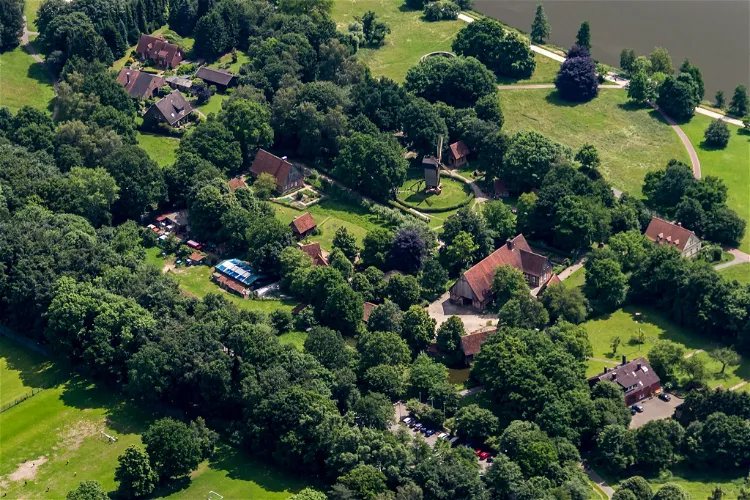
Mühlenhof Freilichtmuseum
MünsterThe Mühlenhof Open Air Museum Münster is conveniently located in the Sentrup district, making it easily accessible for tourists. Its proximity to other attractions such as the Aasee, the All-weather Zoo, and the LWL Museum of Natural History makes it an ideal stop for those looking to explore the cultural and natural history of the region.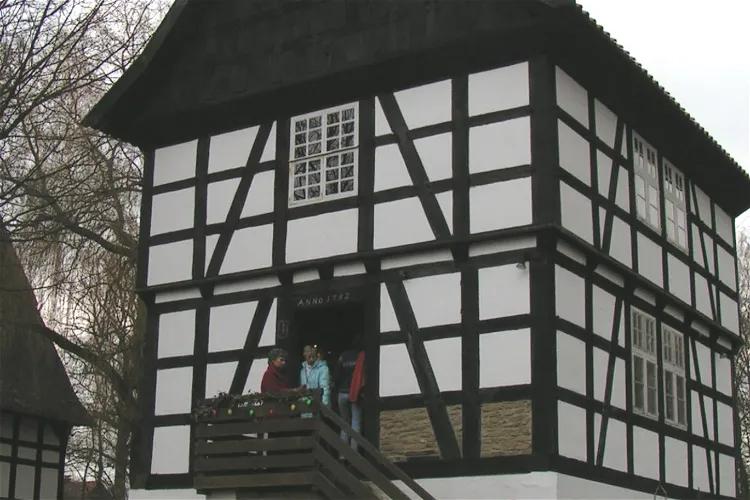
Museumshof Bad Oeynhausen
Bad OeynhausenThe Museumshof Bad Oeynhausen, a local museum in the East Westphalian spa town, was inaugurated in 1969. This museum serves as a testament to the rich history and culture of the region, providing visitors with a glimpse into the past.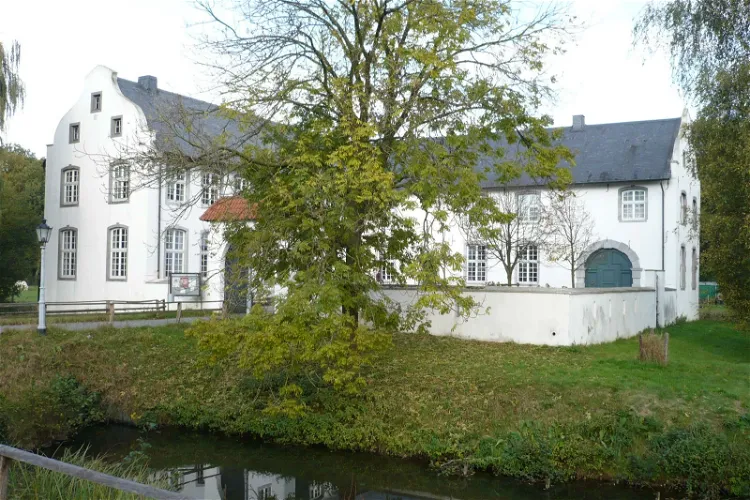
Dorenburg Open-Air Museum
GrefrathThe Niederrheinische Freilichtmuseum is a folkloric open-air museum that provides a glimpse into the rural and artisanal culture of the central Lower Rhine region. It is an excellent place for tourists who are interested in history and culture to learn about the traditional ways of life in this part of Germany.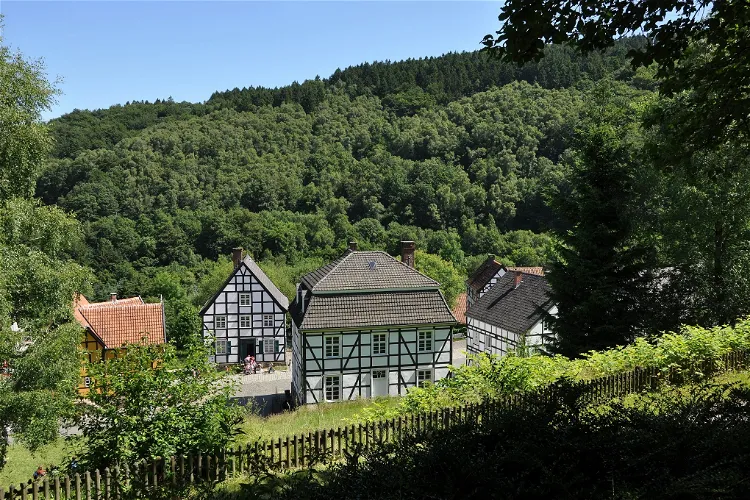
Hagen Westphalian Open-Air Museum
HagenThe Hagen Westphalian Open-Air Museum is situated in the southeastern Ruhr area, in Hagen, North Rhine-Westphalia, Germany. This location is easily accessible and offers a unique opportunity to explore the history of craft and technics in a hands-on manner.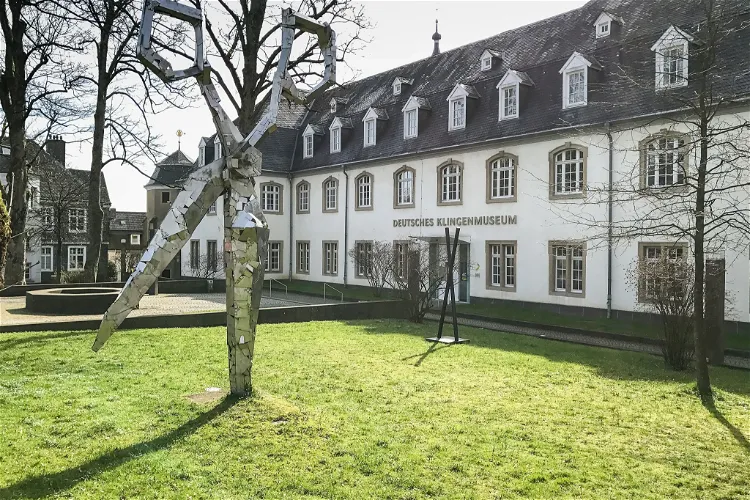
German Blade Museum
SolingenThe German Blade Museum, located in the Gräfrath district of Solingen, is a unique institution that showcases a wide range of cutlery, edged weapons, and cutting tools. The museum's collection provides a comprehensive overview of the evolution and use of blades throughout history, highlighting their significance in human civilization.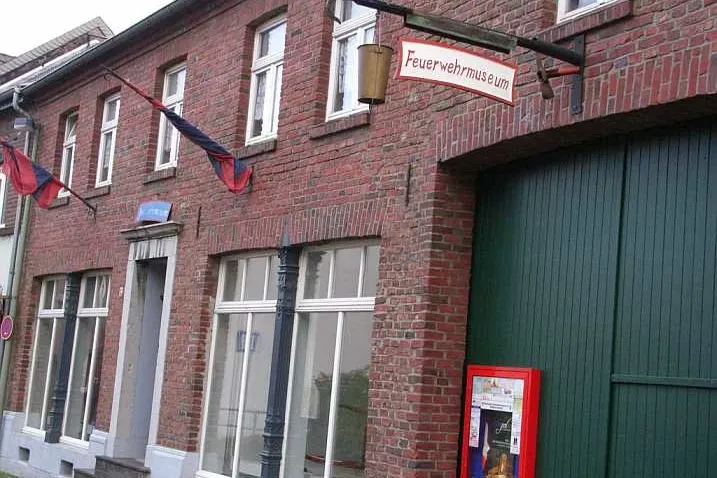
Rheinisches Feuerwehrmuseum
ErkelenzThe Rheinisches Feuerwehrmuseum, located in Erkelenz, was inaugurated on May 28, 1994. Today, it is managed by the Rheinisches Feuerwehrmuseum Lövenich e.V. association. The museum was born out of the private collection of Peter Höpgens and has since grown into a significant cultural institution in the region.
Bocholt textile museum
BocholtThe Bocholt Textile Museum is located in the city of Bocholt, in the north-west of North Rhine-Westphalia, Germany. It is part of the district Borken and is situated 4 km south of the border with the Netherlands. This location makes it easily accessible for tourists from both Germany and the Netherlands.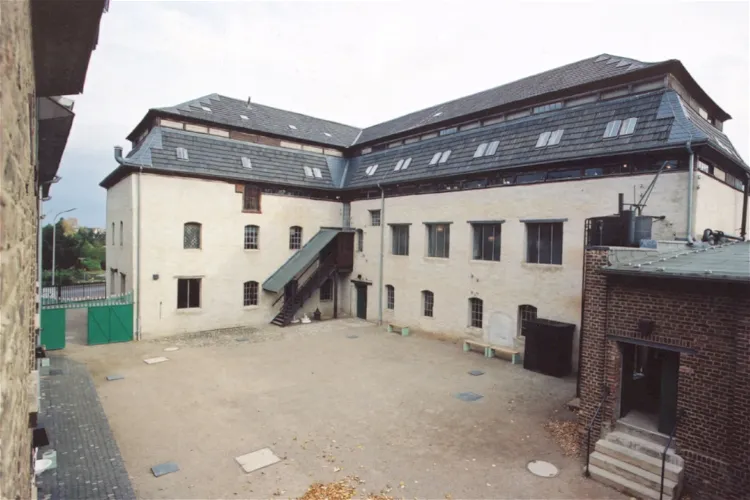
LVR Museum of Industry: Mueller Cloth Mill
Kreis EuskirchenThe museum offers a comprehensive understanding of the cloth mill production process. It features fully functional machinery and equipment from around 1900, providing a unique glimpse into the industrial past. Visitors can observe the machinery in action, offering a tangible connection to the history of the textile industry.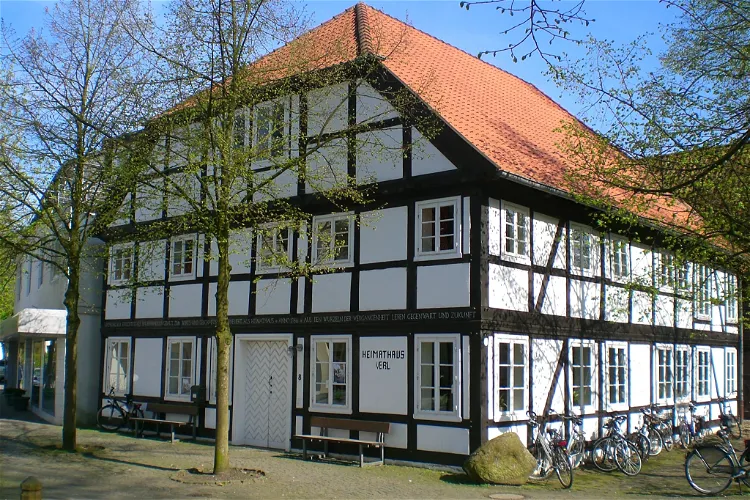
Heimathaus Verl
VerlThe Heimathaus Verl is a historical building that dates back to around 1615. Today, it is used by the local association of the city of Verl, located in the district of Gütersloh in North Rhine-Westphalia, for various cultural events. This includes readings, concerts, and art exhibitions, making it a vibrant hub of local culture and history.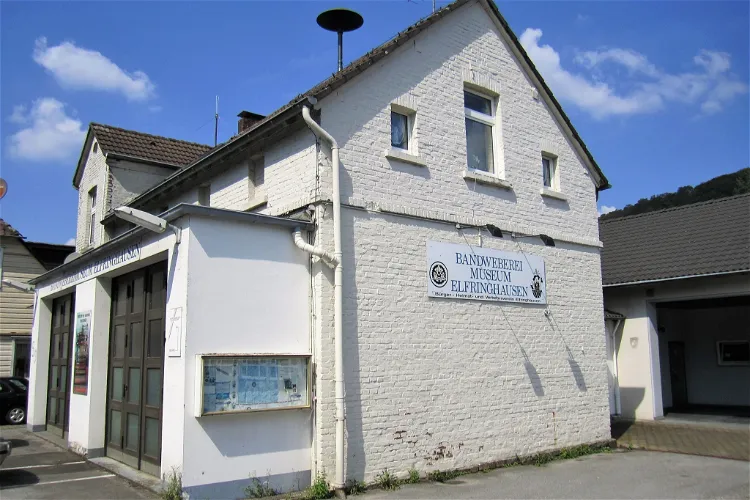
Bandwebereimuseum Elfringhausen
HattingenThe Bandwebereimuseum Elfringhausen, located in Hattingen, is a local history museum that opened its doors in 1996. It is dedicated to the local history of ribbon weaving, a significant part of the region's past. The museum provides an in-depth look into the evolution of this industry and its impact on the local community.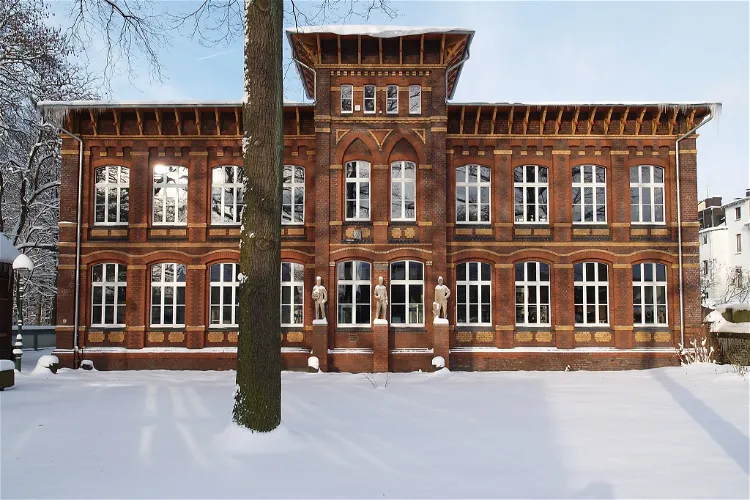
Heimatmuseum Unser Fritz
HerneThe Heimatmuseum Unser Fritz, located in Herne, is one of the three sites of the Emschertal Museum. This museum is dedicated to the social history of Herne and Wanne Eickel. It was established in the year 1926, coinciding with the founding of the city. This museum is a significant part of the city's cultural heritage and offers a deep dive into its social history.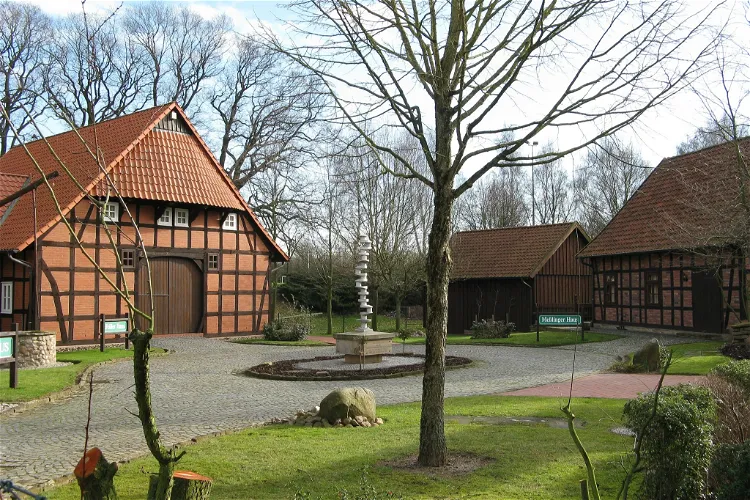
Heringsfängermuseum Heimsen
PetershagenThe Heringsfängermuseum Heimsen is a museum situated in the district of Heimsen in the city of Petershagen, in the Minden-Lübbecke district of East Westphalia. This location is significant as it provides a unique insight into the history and culture of the region.
Baumberger Sandstein Museum
HavixbeckThe Baumberger Sandstone Museum, located in Havixbeck near Münster, is dedicated to the fine-grained yellow Baumberger sandstone, also known as limestone sandstone, which is mined in the nearby Baumberger mountains. This museum provides an in-depth look into the history and significance of this unique type of sandstone.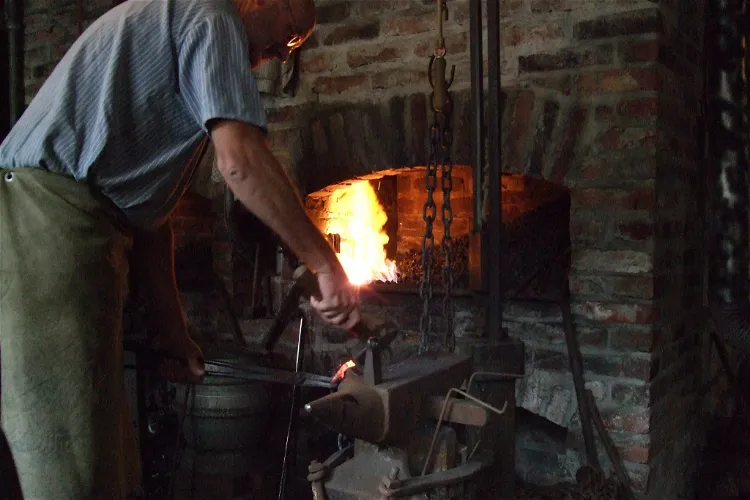
Kettenschmiedemuseum Sichtigvor
WarsteinThe Kettenschmiedemuseum, located in the Warstein district of Sichtigvor, offers a unique insight into the manual production of chains. This process, once practiced by chain smiths, is showcased in a detailed and engaging manner. Visitors can learn about the traditional techniques and skills involved in this craft, providing a fascinating glimpse into the past.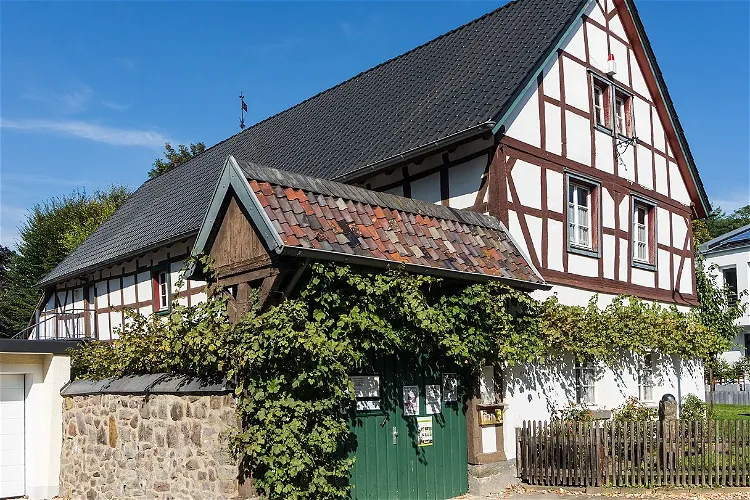
Brückenhofmuseum
KönigswinterThe Brückenhofmuseum is a local history museum situated in Oberdollendorf, a district of the city of Königswinter in the Rhein-Sieg district of North Rhine-Westphalia. The museum began its operation in 1991 in the former winery "Brückenhof" (Bachstraße 93), a half-timbered house dating back to the 17th century. This location offers a unique historical setting for the museum's exhibits.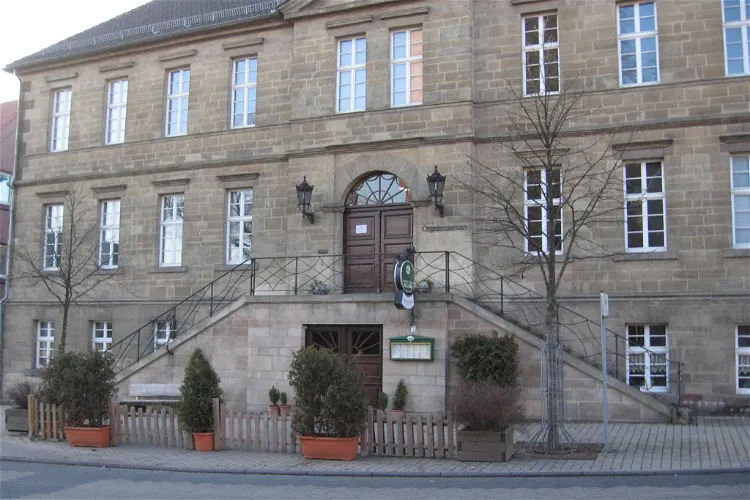
Orgelmuseum
BorgentreichThe Orgelmuseum Borgentreich, established in 1980, holds the distinction of being the first organ museum in Germany. This historical significance adds to the unique charm of the museum, making it a noteworthy destination for those interested in music and history.- 17
Töpfereimuseum
LangerweheThe Töpfereimuseum is situated in the town of Langerwehe, within the Düren district of North Rhine-Westphalia. This location is easily accessible and offers a unique cultural experience for those interested in pottery and its history. 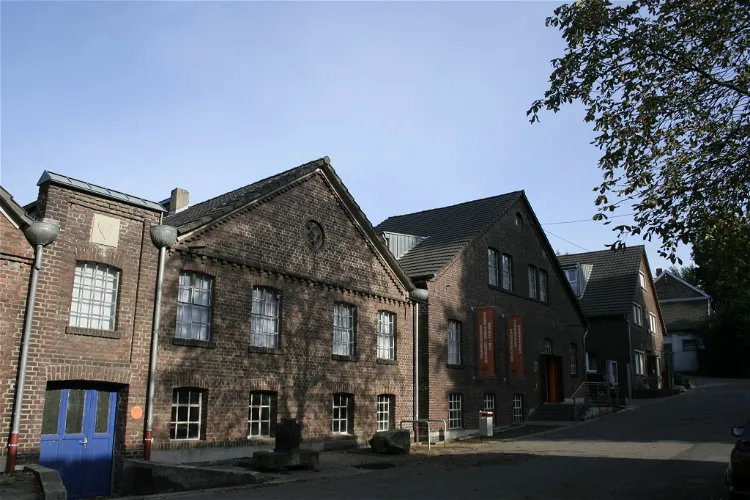
Industriemuseum Freudenthaler Sensenhammer
LeverkusenThe Industriemuseum Freudenthaler Sensenhammer, located in the Schlebusch district of Leverkusen, is a historic scythe factory. This museum offers a unique opportunity to explore the history of industrial manufacturing in the region, with a focus on the production of scythes. The factory's original buildings and workstations have been preserved, providing a glimpse into the past.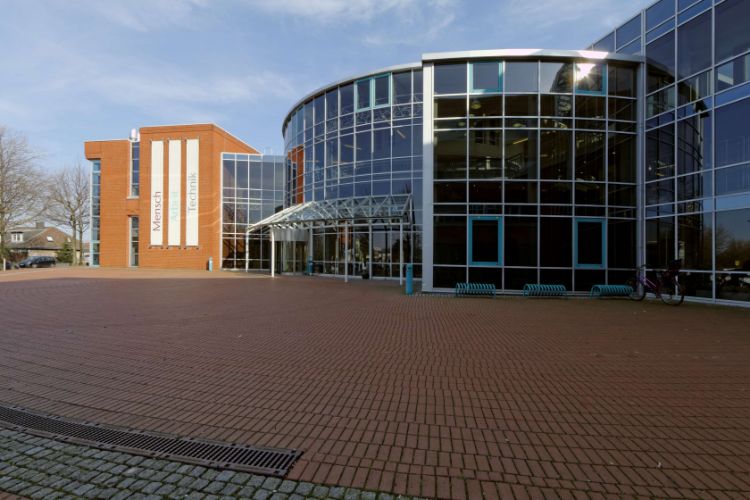
DASA
DortmundThe DASA – Arbeitswelt Ausstellung is an exhibition in Dortmund that focuses on depicting the relationship between work, technology, and people. With an interactive exhibition, the DASA focuses on people with their physical, mental, social and cultural concerns. With its leitmotif man - work - techn- 20
Pharmacy Museum Bad Münstereifel
Bad MünstereifelUntil the flood disaster in July 2021, the Pharmacy Museum Bad Münstereifel displayed the original rooms of the Swan Pharmacy from the 19th and 20th centuries. These included a dispensary, laboratory, material chamber, herb cabinet, and herb garden. The shelves in the museum are original and date back to the founding year of 1806, offering visitors a unique glimpse into the past. 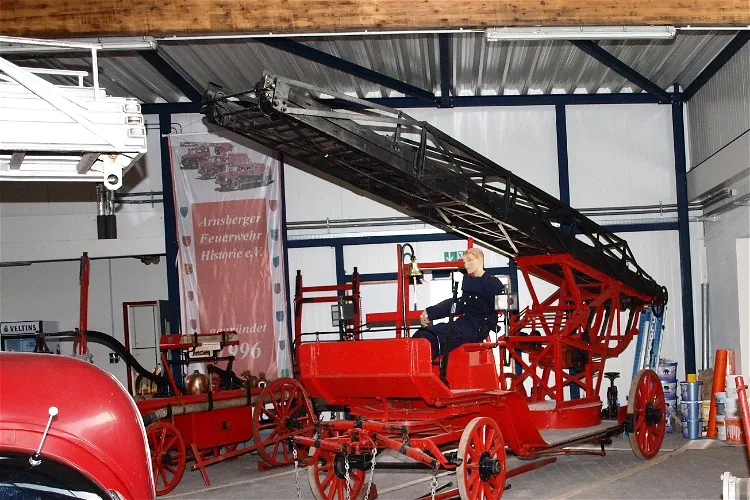
Brennpunkt - Feuerwehrmuseum der Generationen
ArnsbergThe Fire Brigade Museum of the city of Arnsberg, also known as BRENNPUNKT, is conveniently located directly at the Arnsberg train station. This makes it easily accessible for tourists arriving by train. The museum is a part of the city's cultural heritage and offers a unique insight into the history of firefighting in Arnsberg.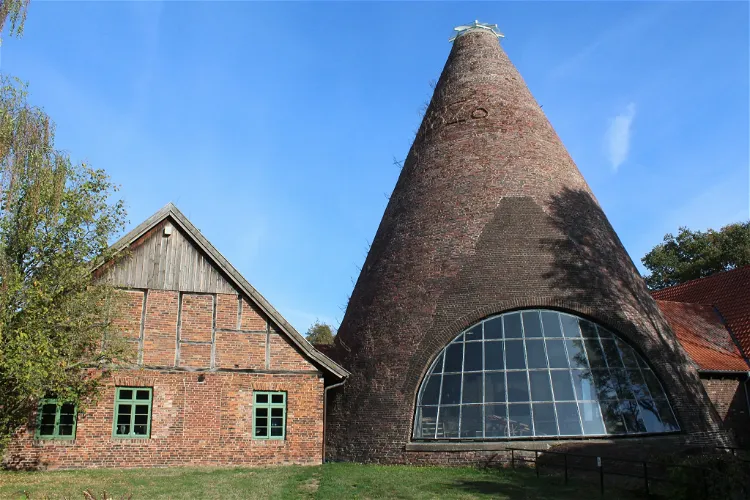
LWL-Museum Glashütte Gernheim
PetershagenThe Gernheim Glassworks, located in Petershagen - Ovenstädt in North Rhine-Westphalia, is a part of the LWL Industrial Museum. This museum is housed in the historic buildings of the former glassworks, which operated as an early industrial factory site from 1812 to 1877. During its operation, the glassworks was a significant producer of glass in the region.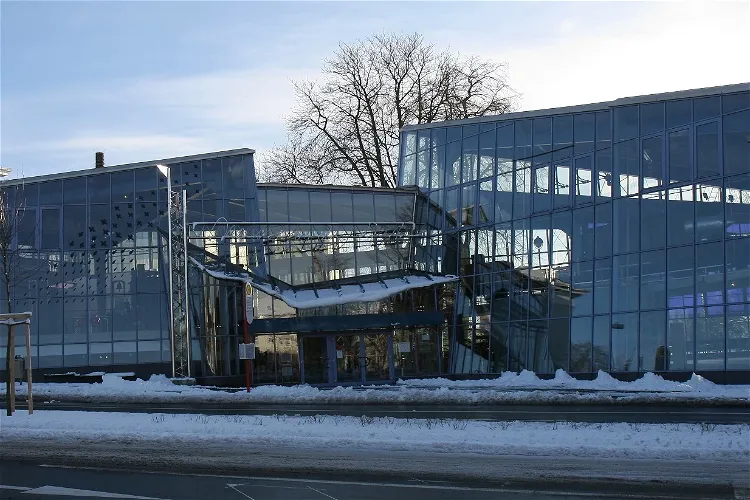
Geschichtsmuseum der Stadt Lüdenscheid
LüdenscheidThe Geschichtsmuseum der Stadt Lüdenscheid is a local history museum that is conveniently located south of the city center of Lüdenscheid. It is situated near the shopping zone Wilhelmstraße and the town hall, making it easily accessible for tourists who are exploring the city.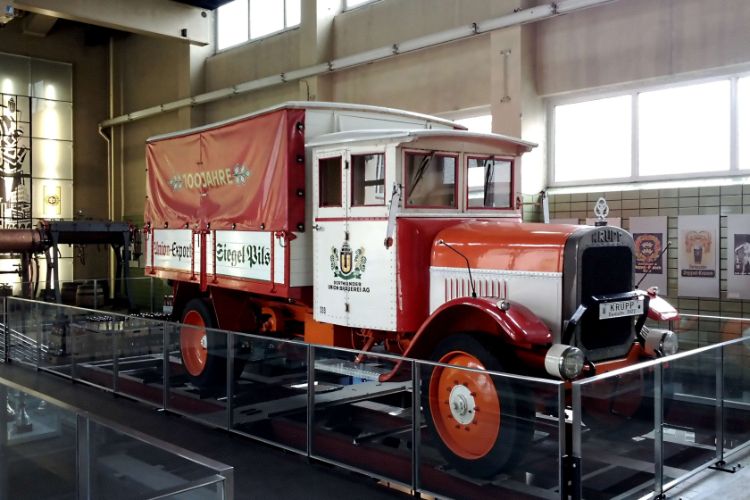
Brewery Museum
DortmundThe Brewery Museum is a beer museum in Dortmund. It is a place devoted to the renowned Dortmund beer. Visitors can learn everything about the history and beer brewing process. The museum focuses on the history of the Dortmund breweries, mostly on the 19th and 20th century with a special focus on the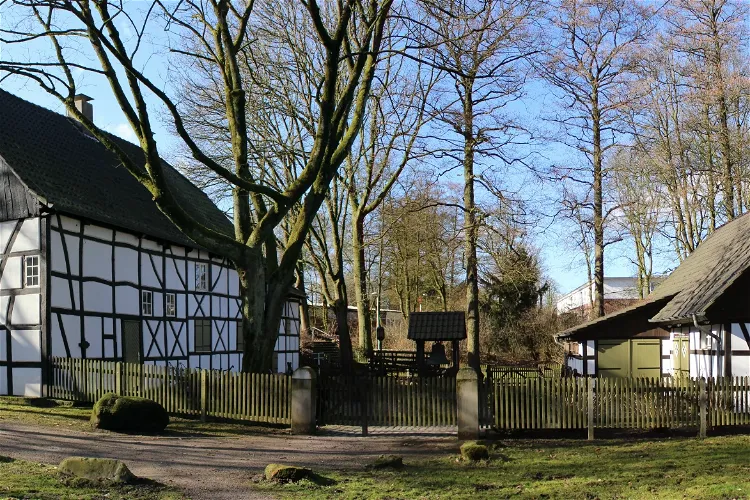
Heimatmuseum Marl
MarlThe Stadt- und Heimatmuseum is a local museum located in the city of Marl. It was founded by Heinrich Keller, who was the head of the Marl local history association. This museum is a testament to the city's rich history and culture, making it a significant point of interest for tourists.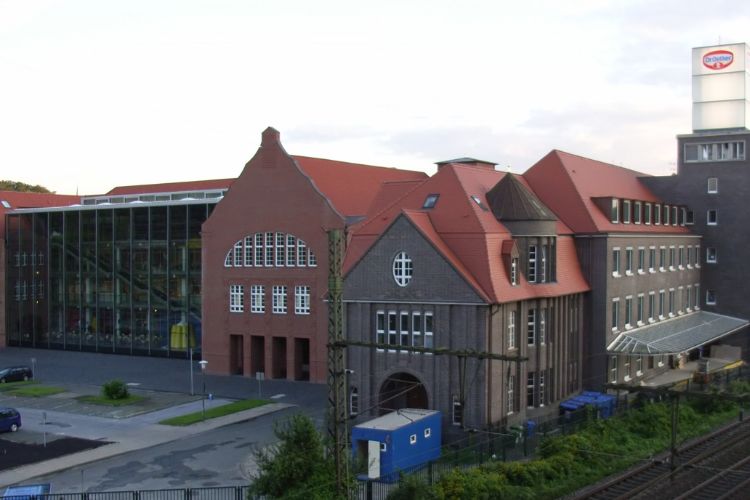
Dr. Oetker Welt
BielefeldDr. Oetker Welt (The Dr. Oetker World) is a museum/attraction in Bielefeld where visitors can discover the Dr. Oetker brand with all their senses. On guided tours and in demonstrations, you will learn about the development of the company, facts about the production and products and facts about the b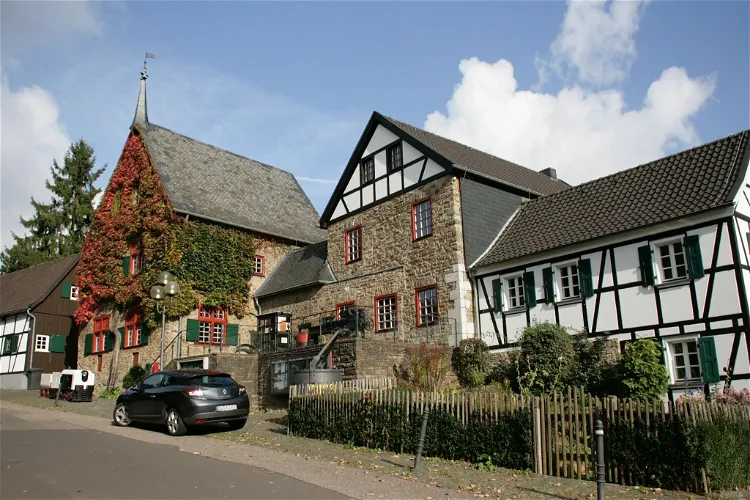
Bergisches Museum für Bergbau, Handwerk und Gewerbe
Bergisch GladbachThe Bergisches Museum for Mining, Crafts and Trade in Bergisch Gladbach offers a unique insight into the history of the region, particularly focusing on the former ore mining in the Bensberger Erzrevier. The museum also showcases the rural-craftsman lifestyles of the local population, with a special emphasis on the 19th and early 20th centuries. This provides a fascinating glimpse into the past, allowing visitors to understand the historical context and way of life during these periods.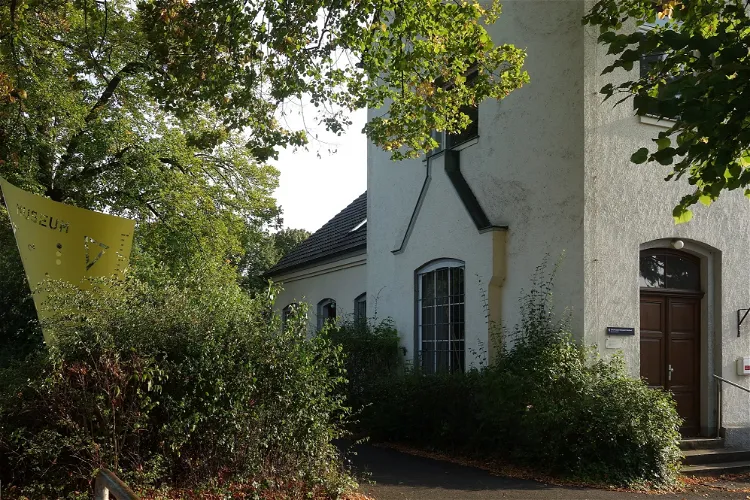
School Museum Bergisch Gladbach
Bergisch GladbachThe School Museum Bergisch Gladbach, established in 1990 by the city of Bergisch Gladbach, serves as a documentation center for the history of rural public schools. The museum is housed in the building of a Catholic public school built in 1871 in the Katterbach district of Bergisch Gladbach. The museum's collection, which has been gathered since the late 1960s, provides a comprehensive insight into the evolution of education in the region.
Papiermuseum Düren
DurenThe Papiermuseum Düren is one of seven museums in Germany that focus on paper or have a department dedicated to paper. This makes it a unique destination for those interested in the history and production of paper. The museum is located in the city of Düren, North Rhine-Westphalia, and is managed by the city itself.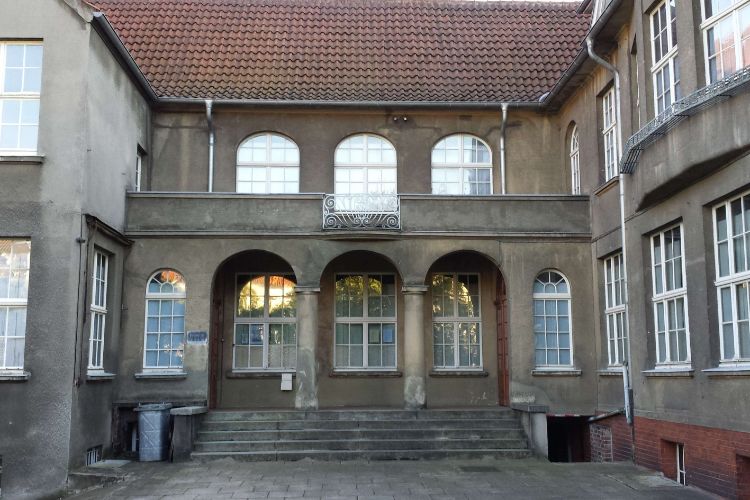
Museum Waeschefabrik
BielefeldThe Museum Wäschefabrik is a museum in Bielefeld that illustrates the working conditions in a linen factory in the middle of the 20th century at its original location. The museum has no exhibition in the traditional sense, but can be seen as a walk-in monument. At the original workstations, backgrou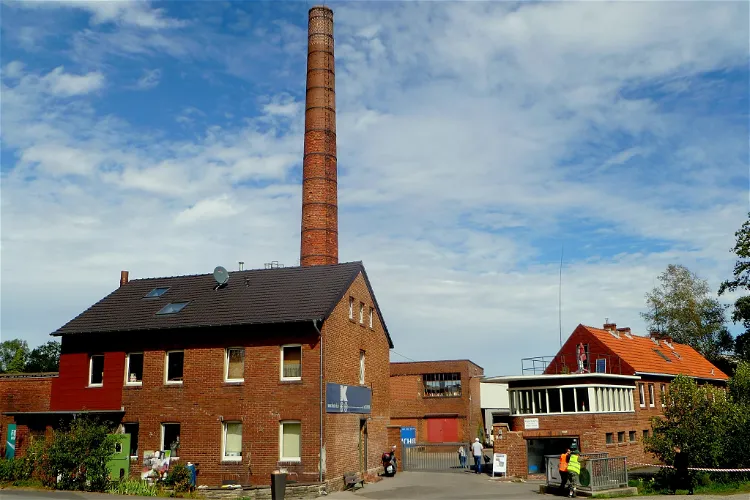
Tuchwerk Aachen
AachenTuchwerk Aachen, previously known as Textilmuseum Aachen, is a public institution with a museum-like character. It is situated in the historic and protected Stockheider Mill, located in the Soers landscape park of the Aachen district of Laurensberg. This location offers a unique blend of history and nature, making it an interesting destination for tourists.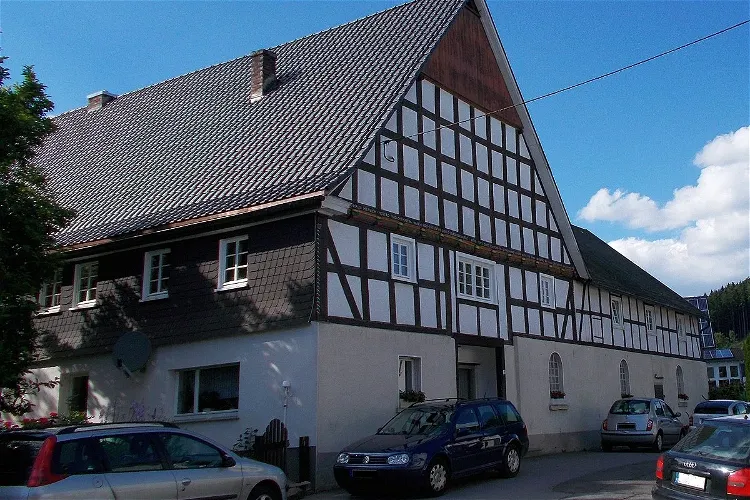
Museum Heimatstube Schönholthausen
FinnentropThe Museum "Heimatstube" Schönholthausen is a local history museum situated in the village of Schönholthausen, which is part of the municipality of Finnentrop in the Olpe district of North Rhine-Westphalia. This museum is a great place to learn about the local history and culture of the region.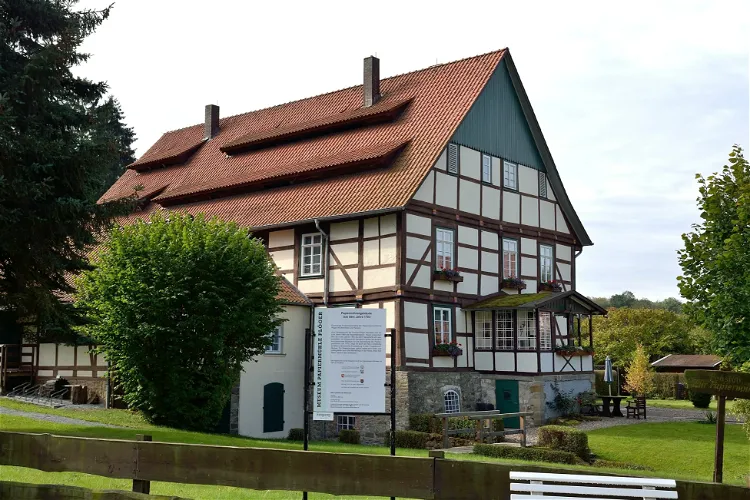
Papiermühle Plöger
Schieder-SchwalenbergThe Papiermühle Plöger is a unique destination that offers a glimpse into the past. This former paper mill, located in Schieder in the Lippe district of North Rhine-Westphalia, has been transformed into a museum. Visitors can explore the history of papermaking and the mill's role in the local community.
Niederrheinisches Museum für Volkskunde und Kulturgeschichte
KevelaerThe Niederrheinisches Museum Kevelaer e.V. is situated in the pilgrimage city of Kevelaer, making it a significant cultural landmark in the region. It is one of the largest museum buildings in the Lower Rhine region, offering a comprehensive insight into the folkloric, cultural, and artistic history of the area.
Bauernmuseum Selfkant
SelfkantThe Bauernmuseum Selfkant comprises a bakehouse and a 2000 m² hall. The museum's collection includes 20 historical tractors and a variety of everyday farming objects. These exhibits provide a glimpse into the agricultural past and offer an educational experience for visitors of all ages.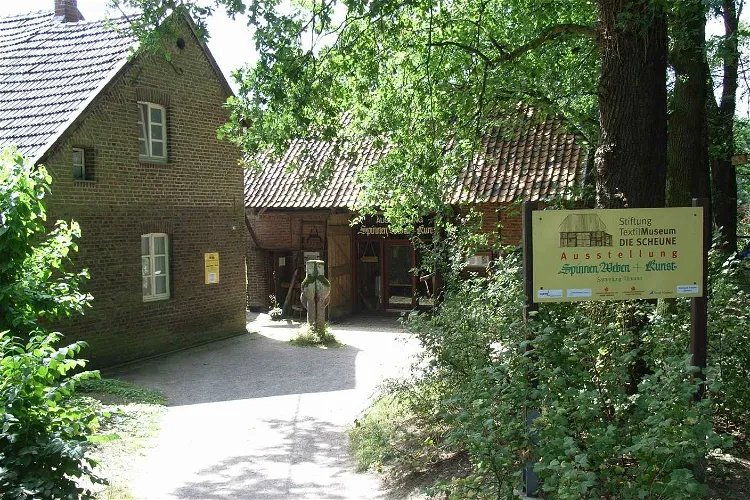
Textilmuseum Die Scheune
NettetalLocated in the district of Hinsbeck -Hombergen in Nettetal, the Textilmuseum Die Scheune offers a unique insight into the world of textile manufacturing. The museum showcases a variety of spinning machines, looms, and other textile machines, along with corresponding work processes. In addition, it hosts exhibitions with changing focus topics, providing a dynamic and engaging experience for visitors.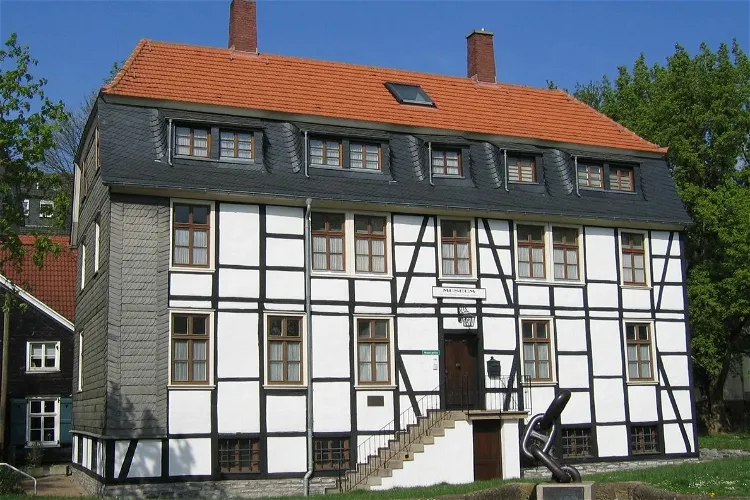
Museum für Handwerk und Postgeschichte
IserlohnThe Iserlohn Museum for Crafts and Postal History is a unique blend of technology and postal history, located in the heart of Iserlohn. The museum, which opened its doors to the public on July 31, 1999, offers a deep dive into the historical representation of the Märkisches crafts and the history of the post in the city of Iserlohn and the County of Mark.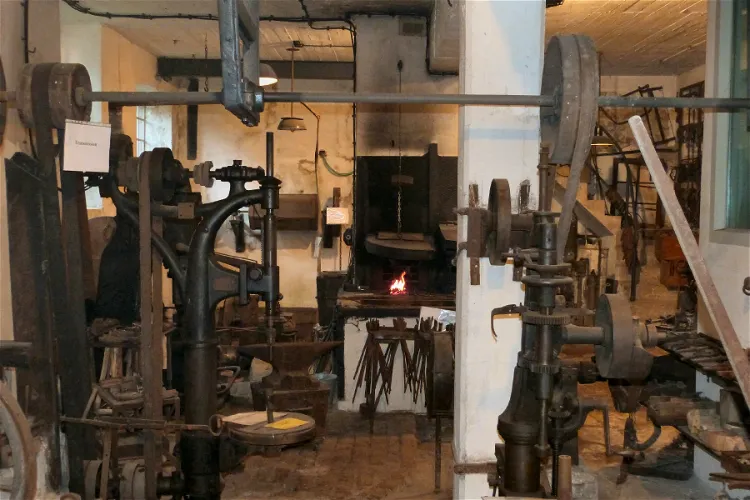
Hammerschmiede Gnuse
VlothoThe Hammerschmiede Gnuse is a historical hammer mill situated in the district of Valdorf, in the East Westphalian city of Vlotho, in the Herford district of North Rhine-Westphalia. This location offers visitors a glimpse into the industrial past of the region, with its rich history and preserved architecture.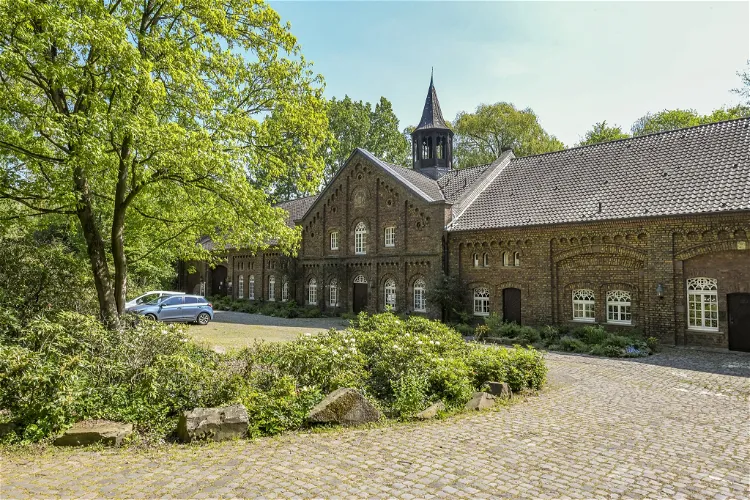
Museum der Stadt Lünen
LünenThe Museum der Stadt Lünen is a city institution located in Lünen, North Rhine-Westphalia, Germany. It displays its collections in over 500 square meters in the former economic building of Schwansbell Castle. The museum offers a wide range of exhibits, including five living rooms from the period between 1840 and 1930, a cast iron collection, a toy and doll collection, a ceramics department, and agricultural and craft tools.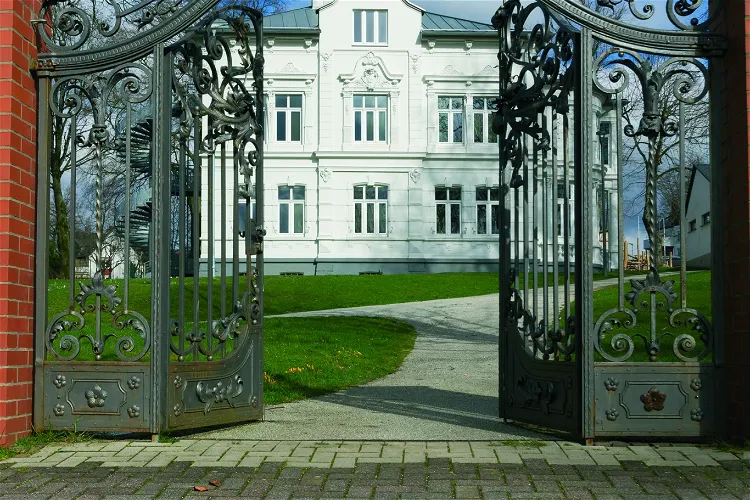
Regionalmuseum Villa Wippermann
HalverVilla Wippermann, located in Halver, is a former residential building that has been transformed into a cultural venue. It is now home to the Regional Museum 'Oben an der Volme'. This historic building offers a unique insight into the region's past and is a significant cultural hub in the area.
Textilfabrik Cromford
RatingenThe Textilfabrik Cromford, located in Ratingen, North Rhine-Westphalia, Germany, holds a significant place in history as it was the first cotton spinning mill on the European mainland. Constructed in 1783 by Johann Gottfried Brügelmann, this mill marked a significant advancement in the textile industry.- 42
Internationales Phono & Radio Museum
DormagenThe museum houses two significant collections from collectors Volkmar Hess and Helmut Dietsch. Hess's collection includes around 400 phonographs, gramophones, and record players, ranging from Edison's first device to devices from the 1990s, along with an extensive collection of sound carriers, including 30,000 shellac records. Dietsch's collection comprises about 4,000 radios, tape recorders, tape devices, and televisions, including American and English radios from the 1920s and the first television built after the Second World War as reparation for the Soviet Union. 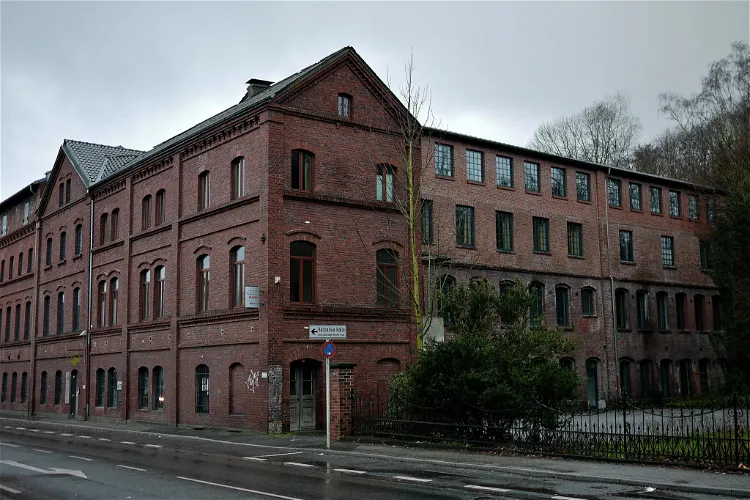
Leather and leather tanning museum
Mülheim an der RuhrThe Leather and Tanning Museum in Mülheim an der Ruhr is a private institution that focuses on the history and manufacturing process of leather and its various end products. This museum provides a comprehensive insight into the evolution of leather production, from its early stages to the modern techniques used today.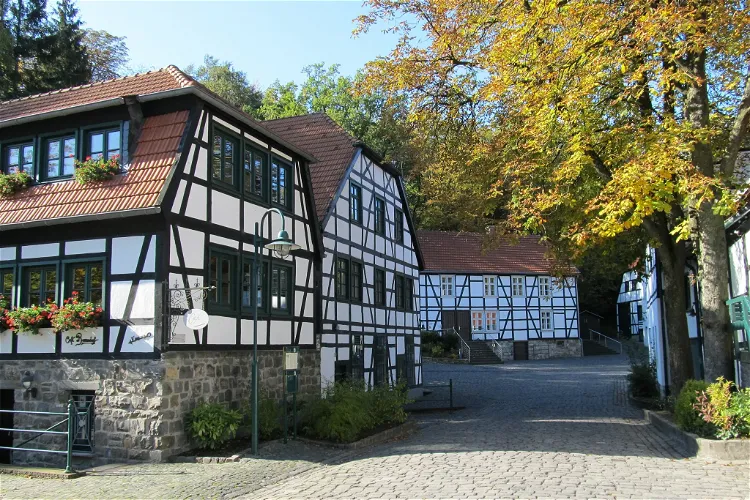
The historic factory Maste-Barendorf
IserlohnThe Historic Factory Maste-Barendorf, located in Iserlohn, is a significant cultural monument. It comprises ten buildings that date back to the 19th century, each bearing witness to the industrial history of the region. The factory complex is now owned by the city of Iserlohn, preserving its historical significance for future generations.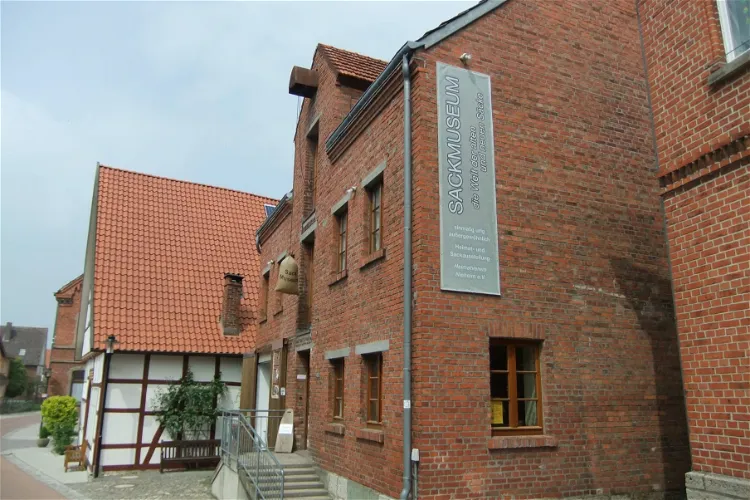
Sackmuseum
NieheimThe Sackmuseum, located in Nieheim, North Rhine-Westphalia, is a unique museum that collects and exhibits bags of all kinds. This includes everything from the smallest mail bag in the world to the largest, the hop sack. The museum's collection is extensive, showcasing bags used for various purposes such as transporting money, letters, packages, coal, shoes, instruments, dowry, clothes, and even garbage.
Bocholter Handwerksmuseum
BocholtThe Handwerksmuseum in Bocholt is a unique destination that showcases a total of 28 different crafts on an area of 720 m². Visitors can explore a wide range of professions, from traditional to contemporary, and gain a deeper understanding of the history and evolution of these crafts.
Deichdorfmuseum Bislich
WeselThe Deichdorfmuseum Bislich is a museum dedicated to local history and natural history, situated in the district of Bislich in Wesel. It offers a unique opportunity to delve into the rich history and natural environment of the region. The museum's exhibits cover a wide range of topics, from local cultural history to the Rhine as a habitat, including dike construction, fishing, and shipping.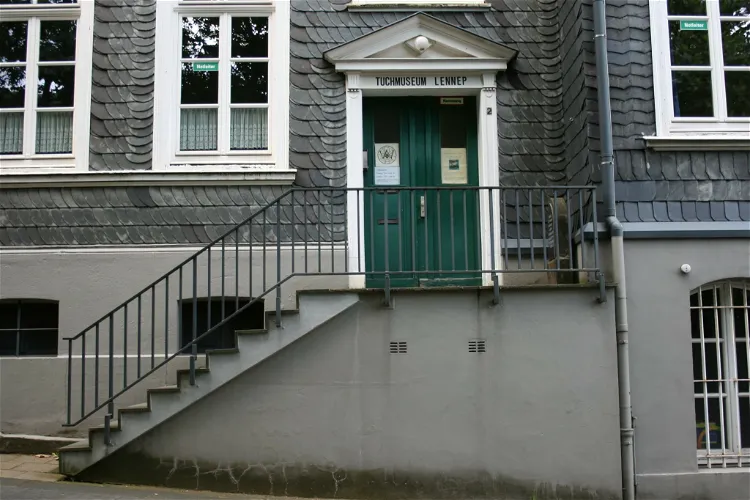
Tuchmuseum Lennep
RemscheidThe Tuchmuseum Lennep, located in Remscheid, is a museum dedicated to the history of the cloth industry in the Bergisches Land. It provides a comprehensive overview of the industry's development and its impact on the region. The museum is housed in the building of GGS Freiherr vom Stein, located at Hardtstraße 2.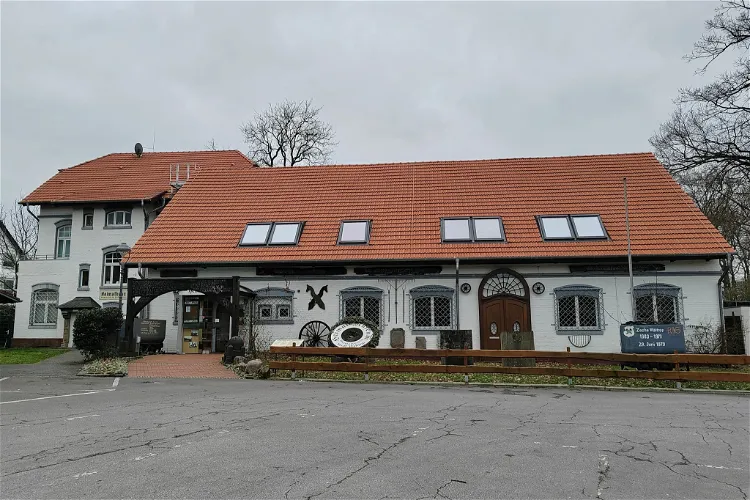
Heimatmuseum Waltrop
WaltropThe Heimatmuseum Waltrop, a museum dedicated to the local history of Waltrop, has been situated in the Riphaushof since 1996. This location provides a unique setting for the museum, which showcases the rich history of the area.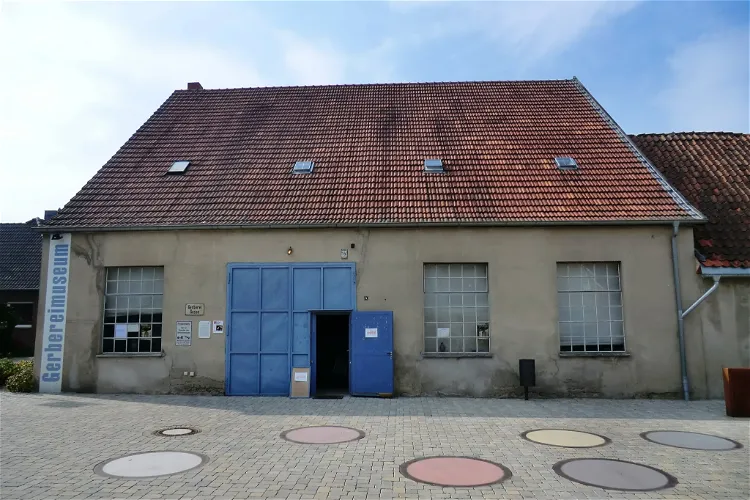
Gerbereimuseum Enger
EngerThe Gerbereimuseum Enger is a craft museum situated in the city of Enger, located in the East Westphalian region of North Rhine-Westphalia. This museum offers a unique insight into the history and techniques of the tanning industry, making it an interesting destination for those interested in history, crafts, and industry.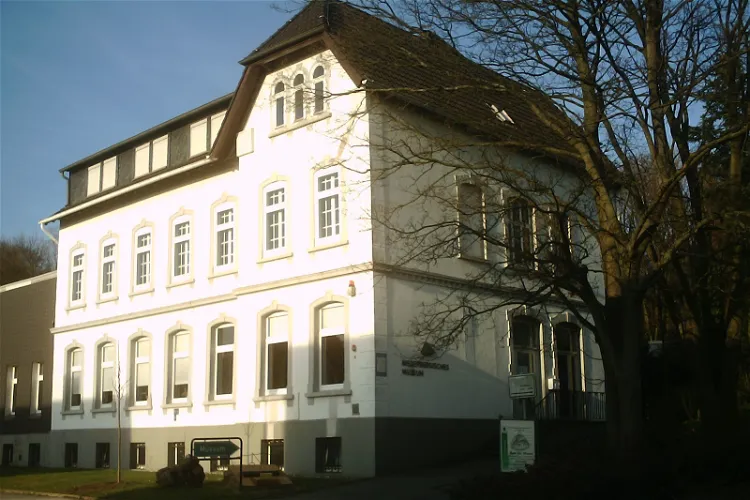
Niederbergisches Museum
WülfrathThe Niederbergisches Museum in Wülfrath is a local history museum that provides insights into the life, work, and the limestone industry of the region. It also showcases related geological and paleontological findings. This museum offers a unique opportunity to understand the local history and culture of Wülfrath and the Niederberg region.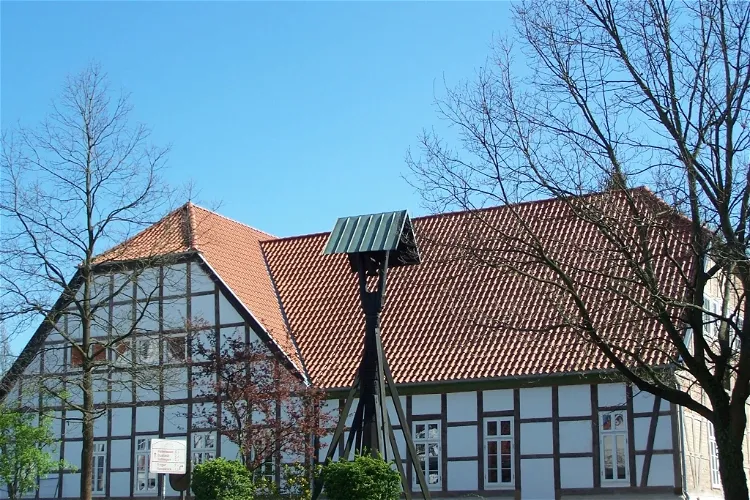
Deutsches Tabak- und Zigarrenmuseum
BündeThe Deutsches Tabak- und Zigarrenmuseum, located in the East Westphalian city of Bünde in the Herford district, is a unique museum that showcases the products and production methods of the tobacco industry. Visitors can learn about the history of tobacco production, from the cultivation of the plant to the manufacturing of cigars and cigarettes. The museum provides a comprehensive overview of the industry's evolution and its impact on the region.- 53
Schatzkammer Kemande
HattingenThe Schatzkammer Kemnade is a unique museum located in Haus Kemnade, Hattingen. It is dedicated to the history of money and is operated by Sparkasse Bochum. This museum offers a unique perspective on the evolution of money and its various forms throughout history. - 54
Heimatmuseum Merzenich
Morschenich-NeuThe Heimatmuseum Merzenich, located in Merzenich, Kreis Düren, North Rhine-Westphalia, is a historical museum that was inaugurated on June 5, 1988. This museum offers a glimpse into the region's past and is a significant cultural landmark. - 55
Porzellanmuseum Münster
MünsterThe Porzellanmuseum in Münster, a city in Westphalia, was inaugurated on November 16, 2003, in Gasselstiege. This museum is dedicated to the art of porcelain painting, a craft that has been practiced in Münster since the mid-19th century. - 56
Museum in der Alten Kornbrennere
SundernThe Alte Kornbrennerei, a protected monument, is situated in the heart of Sundern (Sauerland). This historic building is home to the local museum 'Alte Kornbrennerei'. The museum offers a glimpse into the region's past, showcasing its rich history and heritage.